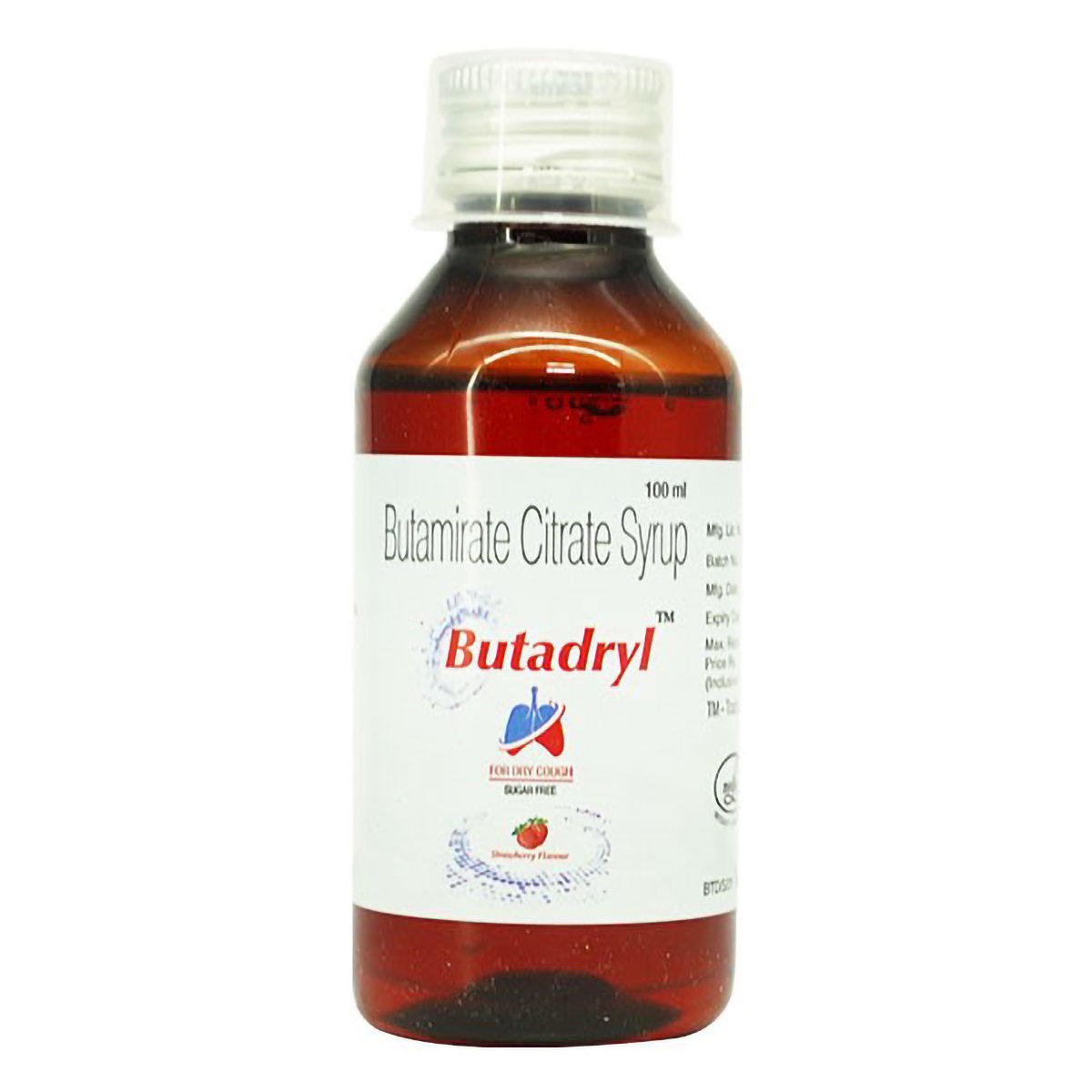Butamirate
About Butamirate
Butamirate is a cough suppressant medicine. It is used in the treatment of dry cough. Coughing is defined as the body's way of clearing irritants like allergens, mucus or smoke from the airways. Cough can be described as two types, namely, dry cough and wet cough. A dry cough is a non-productive cough that is tickly and doesn't produce any mucus.
Butamirate contains Butamirate, which belongs to the class of anti-tussive drugs. It works by blocking the transmission of nerve signals from the cough centre in the brain to the muscles that produce cough, thereby decreasing the urge to cough.
Butamirate may cause certain side effects such as nausea, vomiting, drowsiness, dizziness, skin rash, and stomach pain. These side effects do not require medical attention and resolve over time. Butamirate should be used as advised by your doctor. The dose of the medicine will be decided by your doctor based on the severity of the condition.
Butamirate should be avoided if you are allergic to it or any of the components present in the formulation. Before taking Butamirate, inform your doctor if you have any liver/kidney disease or are taking any other medicines. If you are pregnant or breastfeeding, consult your doctor before using Butamirate.
Uses of Butamirate
Medicinal Benefits
Butamirate contains Butamirate, which is used to provide relief from dry cough. It is an antitussive medicine that works by blocking the transmission of nerve signals from the cough centre in the brain to the muscles that produce cough, thereby decreasing the urge to cough.
Directions for Use
Storage
Side Effects of Butamirate
- Dizziness
- Headache
- Drowsiness
- Skin rash
- Stomach pain
- Nausea
- Vomiting
Drug Warnings
Avoid taking Butamirate if allergic to it or any of the components present in the formulation. Inform the doctor about your complete medical and medication history before starting the treatment to rule out any adverse effects. Before taking Butamirate, inform your doctor if you have any liver/kidney disease or are taking any other medicines. It is unknown whether this medicine is suitable for pregnant and breastfeeding mothers. Hence, inform your doctor beforehand. Avoid driving, operating machines and alcohol consumption while using this medicine as it can cause dizziness. Butamirate is not recommended for use in children below 18 years of age as the safety and efficacy are not established.
Drug Interactions
Drug-Drug Interactions: No interactions found/established.
Drug-Food Interactions: Avoid alcohol consumption and smoking.
Drug-Disease Interactions: Inform your doctor if you have any history of kidney or liver disease.
Drug-Drug Interactions Checker List:
Safety Advice

Alcohol
cautionAvoid consuming alcohol, as it may worsen your condition.

Pregnancy
cautionIf you are pregnant or planning pregnancy, inform your doctor before receiving Butamirate. Your doctor may prescribe this medicine if the benefits outweigh the risks.

Breast Feeding
cautionIf you are breastfeeding, inform your doctor before receiving Butamirate. Your doctor may prescribe this medicine if the benefits outweigh the risks.

Driving
unsafeButamirate may cause dizziness in some patients. Hence, avoid driving and operating machines until you are alert.

Liver
cautionLimited information is available for using Butamirate in patients with liver problems. Hence, if you have liver problems, please consult your doctor before using Butamirate.

Kidney
cautionLimited information is available for using Butamirate in patients with kidney problems. Hence, if you have kidney problems, please consult your doctor before using Butamirate.

Children
unsafeButamirate is not recommended for use in children below 18 years of age as the safety and efficacy are not established.
Habit Forming
Diet & Lifestyle Advise
- Try to take food containing green leafy vegetables.
- Make sure to drink plenty of fluids to avoid a dry throat. It also helps loosen mucus.
- Avoid eating citrus fruits like oranges as they may worsen the cough.
- Add fruits rich in water content, such as pears, watermelon, peaches and pineapples, to your diet.
- Avoid alcohol consumption and smoking.
Patients Concern
Disease/Condition Glossary
Cough: Cough is the body's way of clearing irritants like allergens or smoke from the airways. Cough can be described as two types, namely, dry cough and wet cough. A dry cough is a non-productive cough that is tickly and doesn't produce any mucus. A wet cough (chesty cough) is a productive cough that produces mucous or sputum. Butamirate is used in providing relief from dry cough.
FAQs
Butamirate contains Butamirate, which works by blocking the transmission of nerve signals from the cough centre in the brain.
It is advised not to miss any dose of Butamirate. However, if you forget any dose, take it as soon as you remember unless it is time for your next dose. But do not double the dose.



